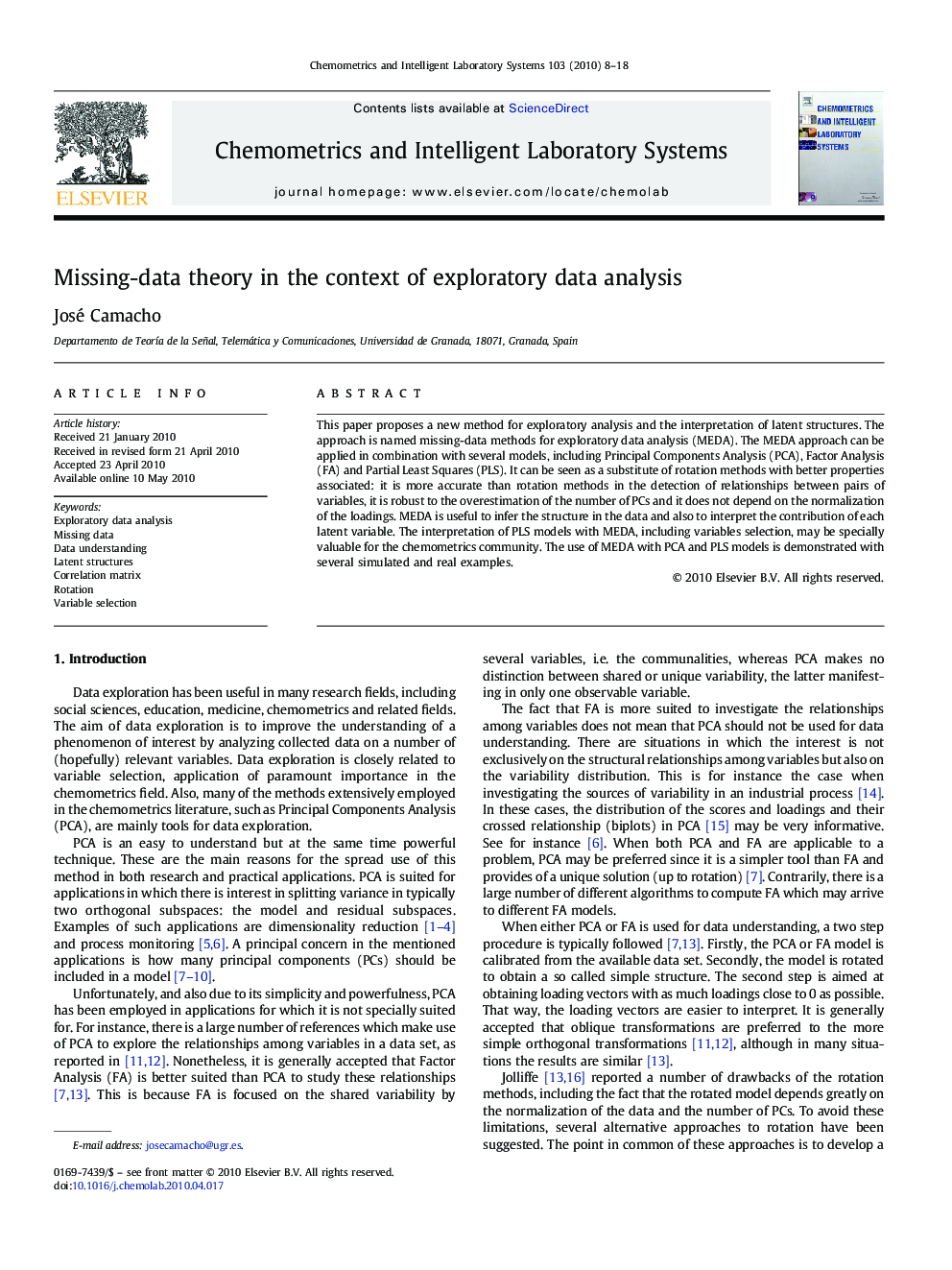| Article ID | Journal | Published Year | Pages | File Type |
|---|---|---|---|---|
| 1179946 | Chemometrics and Intelligent Laboratory Systems | 2010 | 11 Pages |
This paper proposes a new method for exploratory analysis and the interpretation of latent structures. The approach is named missing-data methods for exploratory data analysis (MEDA). The MEDA approach can be applied in combination with several models, including Principal Components Analysis (PCA), Factor Analysis (FA) and Partial Least Squares (PLS). It can be seen as a substitute of rotation methods with better properties associated: it is more accurate than rotation methods in the detection of relationships between pairs of variables, it is robust to the overestimation of the number of PCs and it does not depend on the normalization of the loadings. MEDA is useful to infer the structure in the data and also to interpret the contribution of each latent variable. The interpretation of PLS models with MEDA, including variables selection, may be specially valuable for the chemometrics community. The use of MEDA with PCA and PLS models is demonstrated with several simulated and real examples.
